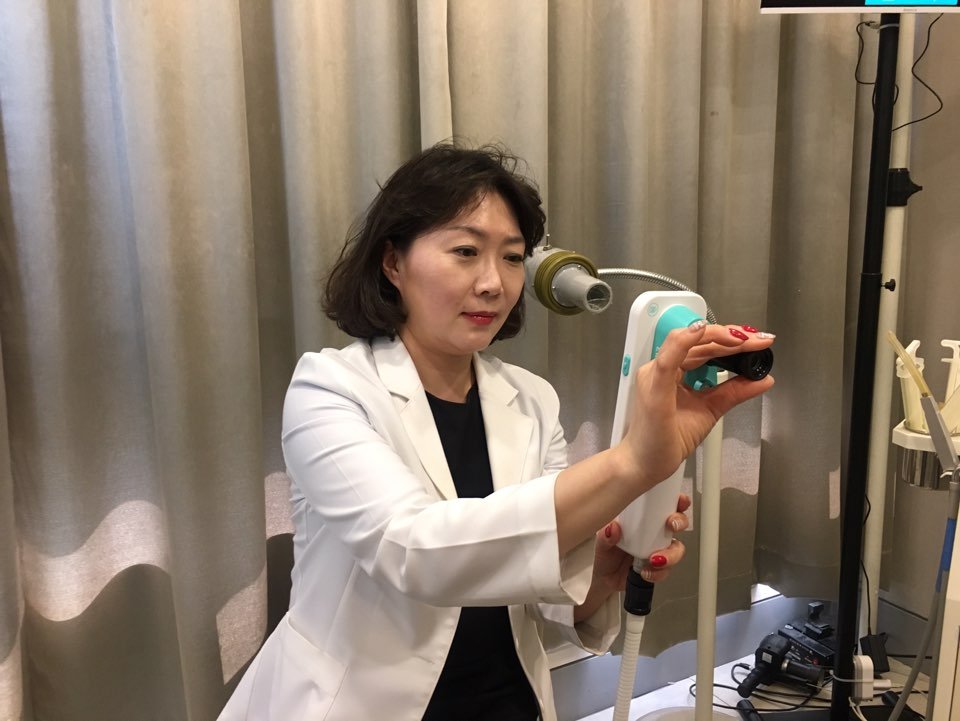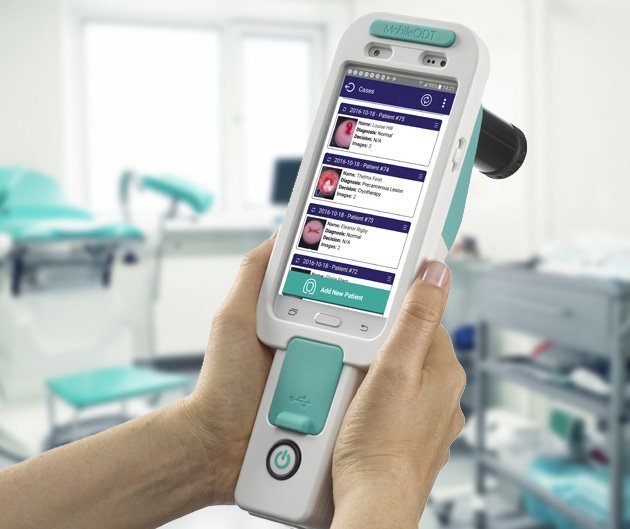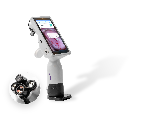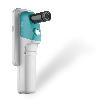It sounds like the holy grail of cervical cancer screening: AI for cervical cancer detection based on a single image of a woman’s cervix. No scrape, no wait. Initial results from a prospective pilot in South Korea demonstrate that immediate, point-of-care AI analysis can be done – and has already been done for over 200 women seen at 10 different clinics around South Korea.

This tremendous breakthrough will be presented by Dr. Kwon at the 2019 ASCCP Annual Scientific Meeting in Atlanta, USA. The Korean study was the first prospective pilot into augmented intelligence (AI) for point-of-care visual cervical cancer detection. The pilot not only demonstrated that AI can detect cervical cancer after analyzing a single image, but it also found that the AI was more reliable than traditional Pap cytology.
AVE algorithm – the beginning of AI for cervical cancer detection
The potential for cervical cancer detection through augmented intelligence was first documented in the National Cancer Institute Journal earlier this year. The AVE (automated visual evaluation) algorithm was created using retrospective clinical trials conducted by the NCI led by Dr. Mark Schiffman and Dr. Nico Wentzensen. They demonstrated a consistent superiority of AVE to Pap cytology. This development of AVE used data collected from a Costa Rican trial in the 1990s using film-based cameras, a technology that is no longer in use in most settings. In order for AVE to reach a clinical application, a suitable image capture tool is required.
Medtech innovators, MobileODT are leading the efforts to bring the AVE algorithm, to practical application. MobileODTs EVA System digital colposcope is perfectly suited as a platform for the technology. Currently, in use in 29 countries, the EVA System captures high-quality cervical images with a user-friendly portable device.
Clincial Decision Support algorithm
The algorithm tested in the pilot, called CDS for Clinical Decision Support, was trained using annotations from expert colposcopists from leading global institutions.
The proof-of-principle study on CDS (on which the Korean pilot was based) was conducted in partnership with the National Cancer Institute and National Library of Medicine in the US, and their clinical collaborators at Rutgers University, Dr. Mark Einstein and Dr. Akiva Novetsky.
In that study, which will be submitted for review and publication, the NCI and NLM reviewed an AI developed by thousands of clinician impressions of images taken on MobileODT’s EVA System from 10 countries around the world and found that the AI was extremely powerful at predicting expert opinion. Following this experiment, MobileODT’s Machine Learning Cluster built a powerful AI that has now demonstrated its use, in real time, in Korea.
CDS is the next step in the journey to leverage the power of AI in the fight against cervical cancer. With early detection, cervical cancer is preventable. But regular screening has remained inaccessible for millions of women around the world. The introduction of AI algorithms for cervical cancer detection promise to bring accurate, cost-effective screening to underserved populations. The new CDS algorithm is the first version of AVE in clinical use. Running on MobileODT’s EVA System, CDS builds upon the AVE algorithm to create a cervical cancer detection tool that can be used at the point of care, on the EVA System portal.
CDS Pilot study in South Korea
The prospective study compared detection of CIN2+ with the AI algorithm to Pap cytology in 212 patients. Results clearly indicated the superiority of the CDS AI run on MobileODT’s EVA System to Pap cytology. Accuracy was measured in comparison to biopsies. The EVA with CDS AI results returned within 1 minute while the patient was still in the room, as compared to the 1-3 days following the examination, as is common for Pap cytology results.
Ten clinics participated in this prospective pilot deployment of the EVA System mobile colposcope and used MobileODT’s AI-powered Clinical Decision Support (CDS) software under the guidance of Laonz, a South Korean distributor of medical equipment who is seeking to make cervical cancer screening in Korea more efficient and effective, to ensure that Korean women can benefit from the best global standard of care.
“Using EVA with CDS in the clinic, the 10 participating doctors could know within minutes what the AI predicts about the patient, instead of waiting days for the laboratories to return their results,” says Thomas Han of Laonz.
“All cases where biopsy result was CIN2+ showed ‘high lesion detected’ on the CDS, which is indeed an encouraging news,” continues Han, highlighting the superior negative predictive value of EVA’s CDS, which, when matched with the high positive predictive value of the test, yielded the superiority to Pap cytology in this prospective use.

The EVA System is a portable, mobile colposcope used for visual inspection during a women’s health visit by healthcare providers who provide a Well Women’s exam. South Korean practice includes the capture of an image of women as a Pap cytology sample is collected. These images were captured on the EVA System, enabling MobileODT’s CDS to automatically evaluate the visual data captured and present to the clinician whether the woman may be at high risk, or whether the CDS did not identify an abnormality in the image.
“CDS on the EVA System is the first real-world demonstration of how AVE AI technology can be used for point of care screening and has the potential to improve the accuracy and access to cervical cancer screening globally,” says Yael Misrahi, MobileODT’s Global Head of Partnerships.







